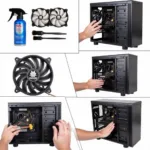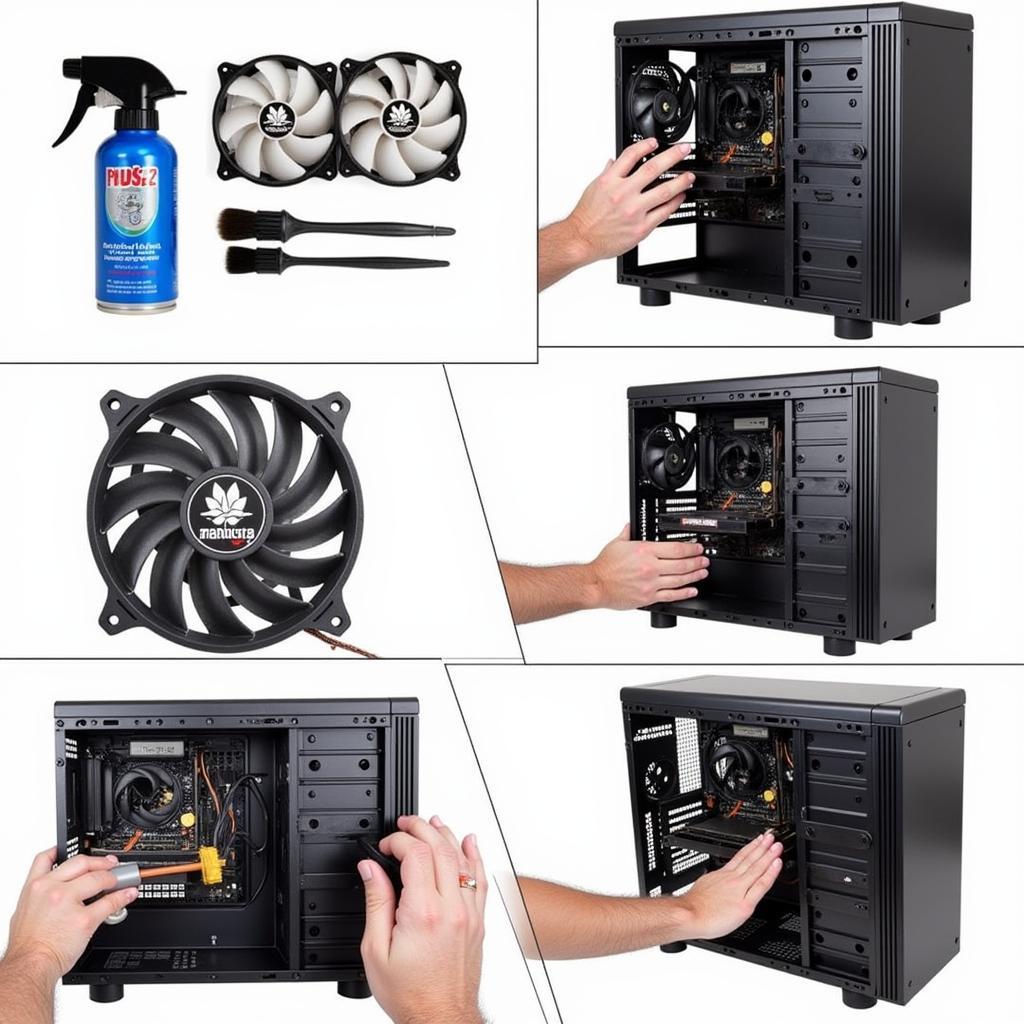Industrial exhaust fans play a vital role in maintaining a healthy and productive environment in various industrial settings. They remove contaminants, regulate temperature, and ensure optimal airflow. In recent years, composite technology has emerged as a game-changer in the design and construction of industrial exhaust fans. This article delves into the world of composite industrial exhaust fans, exploring their benefits, applications, and key considerations.
The Rise of Composite Industrial Exhaust Fans
Composite materials, such as fiberglass-reinforced plastic (FRP) and carbon fiber, have gained significant traction in the industrial fan sector. They offer several advantages over traditional metal fans, making them an attractive option for a wide range of applications.
Benefits of Composite Industrial Exhaust Fans
- Lightweight: Composite fans are significantly lighter than their metal counterparts, reducing the load on supporting structures and minimizing installation costs. This weight advantage is particularly beneficial in high-rise buildings or structures with limited load capacity.
- Corrosion Resistance: Composites excel in resisting corrosion, making them ideal for environments exposed to harsh chemicals, moisture, and salt spray. This durability translates into longer service life and reduced maintenance requirements.
- High Strength-to-Weight Ratio: Composites offer exceptional strength and stiffness, allowing them to withstand high pressures and vibrations. This inherent strength enables the design of lighter and more efficient fan blades.
- Customization: Composites offer unmatched flexibility in design and customization. They can be molded into complex shapes and sizes, allowing for optimal airflow patterns and noise reduction.
- Aesthetic Appeal: Composite fans often have a sleek and modern aesthetic, enhancing the visual appeal of industrial environments.
Applications of Composite Industrial Exhaust Fans
The versatility of composite materials has expanded the applications of industrial exhaust fans in various sectors, including:
- Chemical Processing: Composite fans excel in handling corrosive fumes and vapors prevalent in chemical plants.
- Pharmaceutical Manufacturing: Their resistance to contamination makes them ideal for sterile environments in pharmaceutical facilities.
- Food Processing: Composite fans are hygienic and easy to clean, meeting the stringent sanitation standards of food processing plants.
- Wastewater Treatment: Their corrosion resistance makes them suitable for handling corrosive gases and fumes generated during wastewater treatment.
- Power Generation: Composites are used in large-scale power generation facilities, ensuring efficient air circulation and heat dissipation.
Key Considerations for Choosing Composite Industrial Exhaust Fans
While composite industrial exhaust fans offer numerous advantages, it’s crucial to consider several factors before making a purchase:
- Flow Rate Requirements: Determine the required airflow rate for the specific application to ensure the fan’s capacity meets your needs.
- Operating Pressure: The fan must be able to handle the pressure differential between the inlet and outlet to ensure efficient operation.
- Temperature Considerations: Composite materials have temperature limitations, so choose a fan suitable for the operating temperature range.
- Noise Levels: Composite fans can be designed to minimize noise levels, ensuring a comfortable working environment.
- Maintenance Requirements: Composites typically require minimal maintenance, but it’s essential to choose a fan with readily available parts and support.
Expert Insights on Composite Industrial Exhaust Fans
“The shift towards composite industrial exhaust fans is driven by the demand for lighter, more durable, and energy-efficient solutions,” says Dr. John Smith, a leading expert in industrial ventilation systems. “Composites offer a compelling combination of strength, corrosion resistance, and customization capabilities that make them a superior choice for a wide range of applications.”
Mr. David Jones, a seasoned mechanical engineer, adds, “Composite fans are particularly advantageous in industries where corrosion is a major concern. Their ability to withstand harsh environments minimizes downtime and reduces the need for frequent repairs.”
Conclusion
Composite technology has revolutionized the industrial fan market, offering a range of benefits over traditional metal fans. Their lightweight design, corrosion resistance, high strength-to-weight ratio, and customization capabilities make them a preferred choice for diverse applications. When selecting a composite industrial exhaust fan, consider factors like flow rate, operating pressure, temperature limitations, noise levels, and maintenance requirements to ensure optimal performance and longevity.

